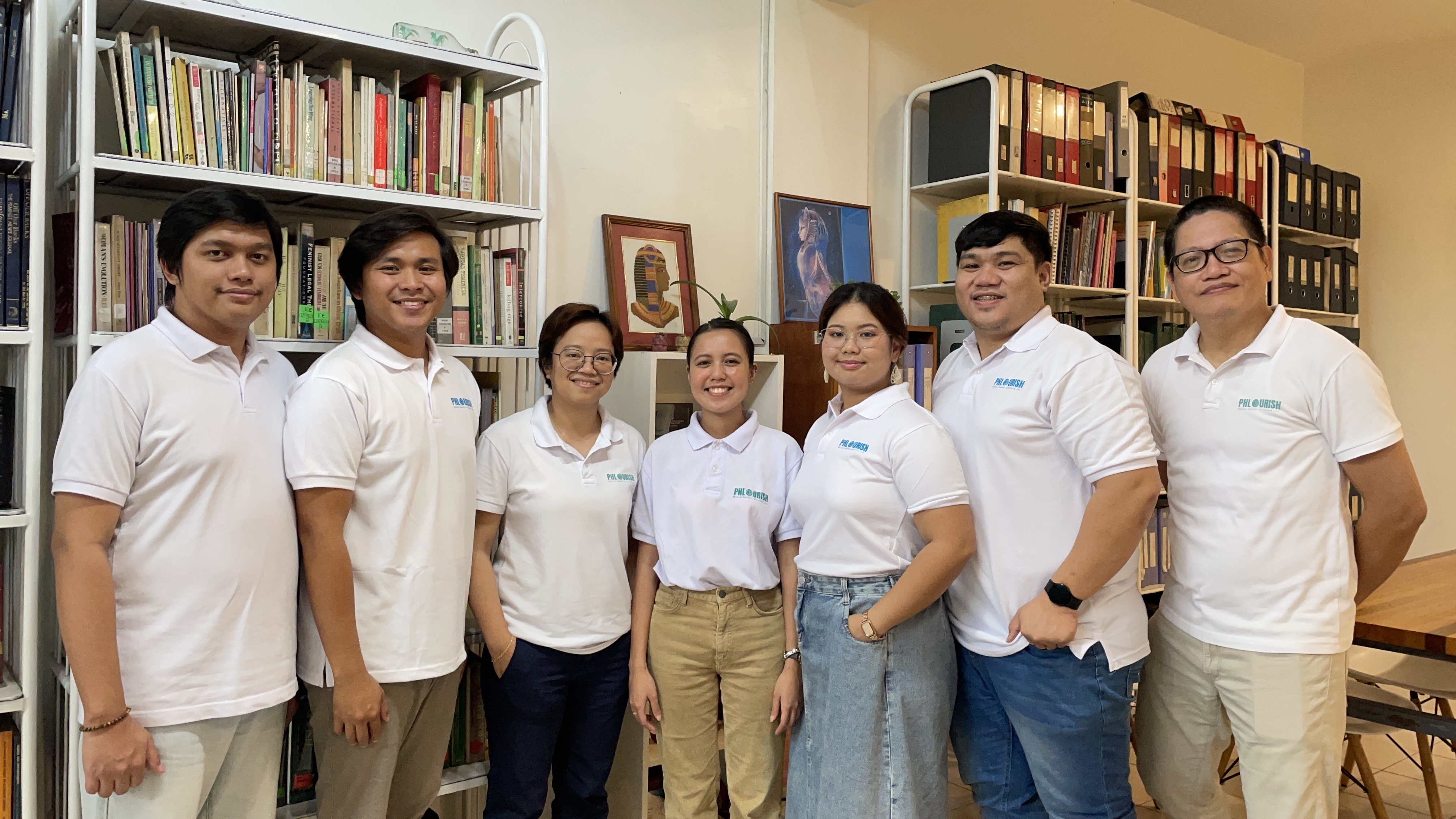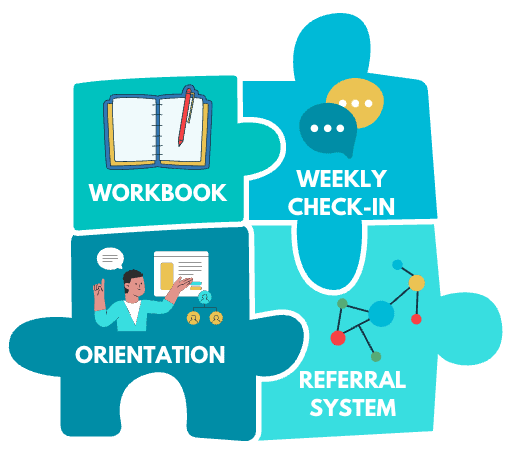August 20, 2025

Phlourish aims to expand mental health support for Filipinos through cost-effective interventions. From piloting to launching a guided self-help program for adolescents, we have reached more than 900 users through 23 partner organizations. They are found all over the Philippines, reaching 25 cities and municipalities in 12 provinces.
We spend around PHP 1,000 (USD 17.50) to provide mental health information and support per user, leading to improvements in life satisfaction and important behaviors.
We are creating new programs to address more mental health gaps in the Philippines. We will stay ambitious and evidence-based as we grow the organization for accessible mental healthcare and flourishing lives for all.
Phlourish is founded by three members of the effective altruism community in the Philippines. Together, the team has background and experience in operations, science communication, research and data analysis, organizational development, government consulting, and social work.
Our goal is to test and scale interventions for mental healthcare to be accessible to Filipinos. We envision that by delivering impactful mental health interventions, we can help foster flourishing lives.
Our guided self-help program takes inspiration from the findings of the Mental Health Charity Ideas Research Project. Previous studies on guided self-help have shown effectiveness in addressing various mental health outcomes and it is known to be one of the most cost-effective mental health interventions.
We focused on adolescents because they are at a crucial period for growth and development. The Philippines ranks as the 2nd country in Southeast Asia with the highest number of healthy life years lost to mental health conditions in 5- to 24-year olds.[1] This was further supported by the 2021 Philippine National Survey on Mental Health and Well-being which found that 1 in 5 children and adolescents (22.2%) developed at least one mental health condition in the past year[2]. Additionally, the 2024 Global School-Based Health Survey reported that among Filipino Grade 7 to 10 students in public high schools, 21.7% experienced suicidal ideation and 27.3% had attempted suicide within the past year[3].
Despite these significant findings on adolescent mental health, the problem remains neglected. Philippine’s profile data in the 2020 Mental Health Atlas (WHO, 2022) shows that there are only 28 child and/or adolescent psychiatrists in the country and a total of 357 mental health workers in child and adolescent local mental health services[4]. The 2021 national survey also revealed that 40.6% reported facing structural barriers to accessing mental health care, such as inaccessibility, lack of services, cost, and difficulties in securing appointments.[2]
It is in this backdrop that Phlourish decided on its first program: guided self-help workbooks for adolescents. Our program is built around four core components: the toolkit or workbook, weekly check-ins with mentors, orientations, and a referral system.

The program was developed based on focus group discussions with adolescents and parents, and consultations with mental health professionals. Experts also reviewed the toolkit to ensure its content was age-appropriate and of good quality. Before the pilot, we conducted user testing to refine the toolkit’s language, design, and usability. The toolkit is designed by metaFox, a company creating emotional intelligence tools for people development professionals and enthusiasts.
The pilot engaged 198 adolescent participants across eight areas in the Philippines (urban, semi-urban, and rural), supported by two partner organizations. We present the results of the pilot following our goals:
[1] to determine the effectiveness of the self-help toolkit in improving mental health outcomes among Filipino adolescents
Among those who completed the program, 47.7% (31 participants) improved by at least one category on the Satisfaction with Life Scale (SWLS). Among participants who were initially Slightly Dissatisfied or Slightly Satisfied, 91.7% and 92.3% respectively moved up by at least one category. Overall, there was significant improvement in SWLS scores, with a medium effect size of 0.46 (p < 0.001). Participants also showed significant gains in 9 out of 14 measured mental health outcomes which are aligned with the toolkit’s lessons.
User feedback and mentor observations provided further evidence of the program’s impact. Adolescents shared meaningful takeaways from the workbook and reflected on how they applied these in their personal lives. Mentors reported that impactful concepts shared by adolescents matched workbook chapters. Parents also observed positive changes in their children including more openness and improved communication.
[2] to determine the acceptability of the self-help toolkit among Filipino adolescents, parents, and other stakeholders
The program was well-received, earning a final average rating of 9.75 out of 10. Among program completers, toolkit reading and activity completion rates were high, at 86.1% and 73.7% respectively. Participants appreciated the content and visual design of the toolkit, noting that it was engaging, easy to understand, and helped them reflect and apply mental health strategies. Mentoring was also highly valued; participants cited the supportive and approachable style of Phlourish Lay Mental Health Mentors as a key strength. Parents expressed strong support for the program, motivated by wanting to help their children go through adolescence with greater emotional awareness and balance.
[3] to determine the cost-effectiveness of the self-help toolkit
The average cost per pilot participant was $19.76 or PHP 1,100. With an average increase of 2.37 SWLS points per program completer, this results in a cost-effectiveness estimate of approximately $8.39 or PHP 439.27 per one-point increase in life satisfaction.
Overall, Phlourish finds the results of the pilots promising with identified areas for improvement including understanding mechanisms of impact, participant recruitment, and implementation models for scale. We are excited to bring the guided self-help program to more adolescents and help them lead flourishing lives.
You may read the full report of the pilot here.
After our successful pilot, we set a goal to reach 3,000 users for our guided self-help toolkit in 2025. By mid-July, we had reached 710 users. While we have encountered challenges in engagement, we are encouraged by users’ motivations—many want to learn about and care for their mental health, understand and manage their emotions, and explore self-discovery. Most have not yet received any mental health programs, and nearly half face barriers to accessing services.
Initial results show some positive signs: improvements in life satisfaction, anxiety and depression symptoms, and other mental health outcomes. Users are also giving high ratings to the program. We will share a full report after this year.
We have gained valuable insights from our pilot and the implementation of our first guided self-help cohort. Gaps in mental healthcare remain widespread across the country and our current program is just one of many needed interventions. Some populations and areas continue to be overlooked, even though effective solutions do exist. While the pilot results and early signs from the first cohort are promising, challenges in recruitment and maintaining engagement have prompted us to explore additional ways to support adolescent mental health.
We assessed our strengths and areas for improvement, to leverage our capabilities for new initiatives. We have identified opportunities within our current guided self-help program and generated ideas inspired by different sources. We also conducted a survey among our users about what a mental health program should look like. This has led us to compile a list of potential programs to expand our impact. We then narrowed the list using this criteria:
We decided on the following three:
We will share more information about these new programs after the pilots.
For the rest of 2025, we aim to:
For the years ahead, our plans will be highly dependent on this year’s progress and pilot results. If all programs remain promising, we hope to:
We are launching an internship program soon! Learn while helping us with our implementation, monitoring and evaluation, and administrative processes. Stay tuned for the call on our Facebook page.
We are always excited to connect with others who share our mission. As a growing organization, we’re actively looking for opportunities to learn, share, and collaborate—and we would love to support others doing the same.
We are especially open to working together in the following areas:
At the same time, we are more than happy to support others who are entering the mental health or nonprofit space. We believe in growing a strong ecosystem and are always eager to share what we have learned and learn from others.
If you see any opportunity to connect, collaborate or even just exchange ideas, please do not hesitate to reach out.
Facebook: www.facebook.com/people/Phlourish-Mental-Health-Initiative-Inc/
Email: contact@phlourish.ph
Website: www.phlourish.ph
References